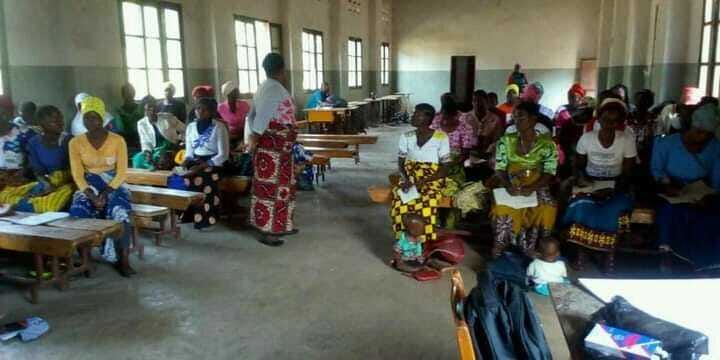
Machinga, Malawi-Kawelama, Ntalika, and Sulumba villages in Traditional Authority Kawinga, Machinga district, are witnessing a transformative initiative known as the Amayi Titukuke Project-ATP, writes Happy Valirani.
The project aims to improve the lives of women and girls by equipping them with social, economic, and vocational skills to become self-reliant.
Launched in July 2022, the Amayi Titukuke Project has already made significant progress, reaching out to 58 women and providing them with business management and vocational training, including tailoring and design.
The project is being implemented by two dedicated women, Kulukaya Sadiki and Chifuniro Kambauwa, in collaboration with the Mandela Washington Fellowship Alumni and the U.S. Department of State-U.S. Embassy Malawi.
Chifuniro Kambauwa, the project coordinator, explains that the initiative was designed to empower girls and women to achieve self-sufficiency and fulfilment through the recognition and utilization of their creative skills.
She highlights the positive outcomes already emerging from the project, with women acquiring sewing machine skills and undergoing financial literacy training.
"One of our initial objectives was to conduct mindset change training before exposing participants to the real market. We aim to increase employment opportunities for marginalized women, create business prospects, reduce dependency on men, and mitigate risky behaviours that lead to HIV infections. We are delighted to see our efforts bearing fruit," beams Kambauwa.
Economic empowerment is a key focus of the Amayi Titukuke Project, with girls and women being taught the significance of savings, market research, and marketing to survive and thrive in the business world, as Kambauwa emphasizes.
Elide Injezi, a businesswoman from Sulumba village, expresses gratitude for the initiative and its impact on her financial management skills, enabling her to turn a profit in her business.
"In the Amayi Titukuke Project, I have learned valuable skills to improve my business. I had no knowledge of budgeting, savings, or market research, among others. Now, I am able to save money, which will enhance my livelihood, and reduce my dependence on my husband," says Injezi.
Eneless Gunde, from Ntalika Village, Traditional Authority Kawinga, Machinga, also appreciates the ATP initiative, highlighting the importance of women's self-reliance and the strategies learned to grow small-scale businesses.
"We have been trained to be self-reliant and not solely dependent on our husbands. The business pieces of training have equipped us with the knowledge to improve our businesses. This will positively impact our families," Gunde shares.
Furthermore, Kambauwa stresses that the project's scope extends beyond economic empowerment, aiming to reduce instances of sexual assault, early pregnancies, and early marriages by targeting both women and girls.
However, the project's expansion will depend on the availability of funding.
The Amayi Titukuke Project serves as a beacon of hope for women and girls in Machinga, providing them with the necessary tools and skills to lead empowered and self-reliant lives.
With each success story, the project strengthens its mission to uplift and transform communities, fostering a brighter future for all.